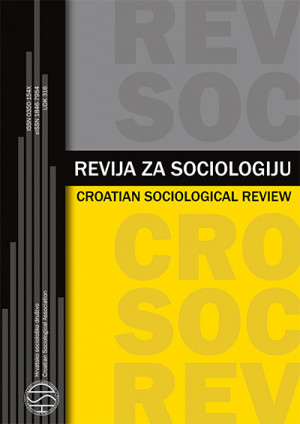Rodna tipičnost visokoškolskih obrazovnih aspiracija tijekom srednje škole: intenzifikacija, konvergencija ili stabilnost
Gender Typicality of Higher Education Aspirations in Secondary Education: Intensification, Convergence or Stability
Author(s): Ivana Jugović, Teo Matković, Boris JokićSubject(s): Gender Studies, School education, Higher Education
Published by: Hrvatsko sociološko društvo
Keywords: higher education aspiration; gender typicality; domain interest; institutional setting; secondary school experience;
Summary/Abstract: The aim of the paper was to examine intensification, convergence, or stability in the gender typicality of girls' and boys' higher education aspirations during the time spent in secondary education. The study, conducted on a sample of 13,301 pupils of four- and five-year secondary education programmes, examined the roles of the secondary education programme, pupils' interests, and school success in explaining the gender typicality of their higher education aspirations. The results suggest that, although there are differences between girls and boys in the gender typicality of their educational aspirations, these differences are stable over time, whereby neither the gender intensification nor the gender convergence hypotheses were confirmed. The girls' and boys' choices become neither more, nor less gender-stereotypical, compared to the start of secondary education. The results of regression models show that the gender typicality of higher education aspirations differs with regard to vocational domain/grammar school programme: pupils in typically male programmes aspire towards typically male higher education programmes and vice versa. School success and interests have also contributed to the explanation of the gender typicality of higher education aspirations. Success in the Croatian Language and interest in linguistic and biomedical domains predict a stronger aspiration towards typically female higher education programmes, while success in Mathematics and the English Language, and interest in technical and ICT domains contribute to the aspiration towards typically male higher education programmes. The findings of this study suggest that, along with the influence of gendered educational interests and achievements, the differentiation of secondary education can influence gender-stereotypical educational aspirations.
Journal: Revija za sociologiju
- Issue Year: 50/2020
- Issue No: 2
- Page Range: 253-284
- Page Count: 32
- Language: Croatian

